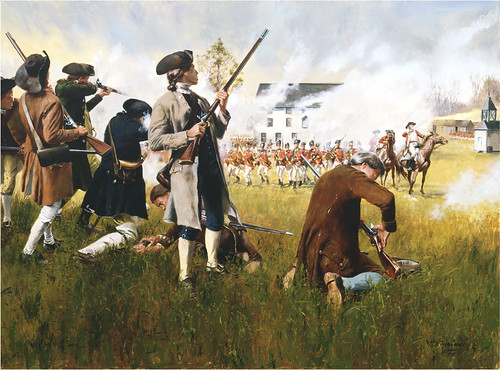.JPG)
Dear families-
Today we read/listened to "Out, Out--" by Robert Frost. It is a powerful [one-stanza narrative] poem that is based on a true event that occurred in late March, 1910. Raymond Fitzgerald, the twin son of Frost's friend and neighbor, lost his hand to a buzz saw. His hand bled so profusely that he went into shock and died of heart failure. Frost compares this story to a scene in Macbeth, by William Shakespeare. Upon learning of his wife's death, Macbeth cries: "Out, out, brief candle!/Life's but a walking shadow, a poor player/That struts and frets his hour upon the stage/and then is heard no more...." In these lines, Macbeth compares her life (and everyone else's) to that of a candle--brief and ultimately insignificant. Here is Frost's poem "Out, Out--" spoken in strong, convincing New England vernacular:
As far as our poetry unit is concerned, each class writes about four poems a week, with time in class to complete, edit, and type each one. I am available whenever a child needs a little extra help! Glossaries were a long-term assignment that was due last Friday (writing simple definitions and examples for 14 poetic terms), and a "Found Poem" was due today. This entailed finding a poem that they could relate to, typing it (in most cases, they cut and pasted it from the internet in about 30 seconds), illustrating it, writing a bibliographic entry at the bottom of the page (which I provided help with), and writing a brief paragraph about how they connected to/with the poem. LOTS of class time was given to this assignment with DAILY reminders. Though it was a relatively simple task, some did not do it. (With the level of support we're providing, I have to say you really have to work at not completing these assignments...)

I'm excited about the way in which we're approaching Social Studies as this year winds down. With the help of a few well placed short clips (which I provide on this blog...), we're discussing some pretty significant aspects of the Revolutionary War. Discussions become quite animated as we explorer "the stories behind the story"! It's a good way to review, and to make connections to everything we've talked about this year..I'll be adding more clips this weekend for future discussions, but please take the time to watch the Victory Kids episodes; they're entertaining AND informative!
 Hello families--
Hello families--













